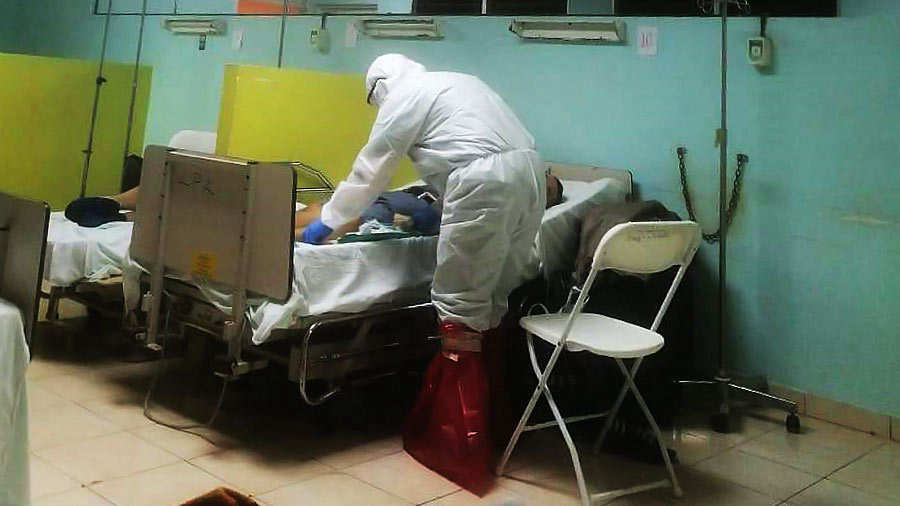Coronavirus cases in El Salvador are starting to climb. The very first case was discovered on March 14th. Last week, when the government of El Salvador imposed a lockdown on the country, there were only three cases of Coronavirus. Now, only a week later, there’s 19 cases of the Covid-19 virus. And there’s 18 more suspected cases of people that are in quarantine – the result of those potential cases will be published tomorrow. Of the 19 existing cases, only two are women (official info here). Overall, these figures show the rapid growth of cases here. In less than two weeks El Salvador is expected to hit more than 100 total cases.
Before Coronavirus was officially a pandemic, El Salvador’s government took a strong stance against the virus: Implementing procedures to secure the border, quarantining potentially infected travelers, telling people to avoid high traffic areas and warning people of the coming challenges. That strong initial reaction to Covid-19 has been impactful. People are staying at home. The streets are rather empty. Everyone is very serious about the dangers of contracting the virus.
The Rules Of El Salvador’s 30-Day Lockdown
El Salvador went into lockdown last week and the rules were put in place by President Nayib Bukele.
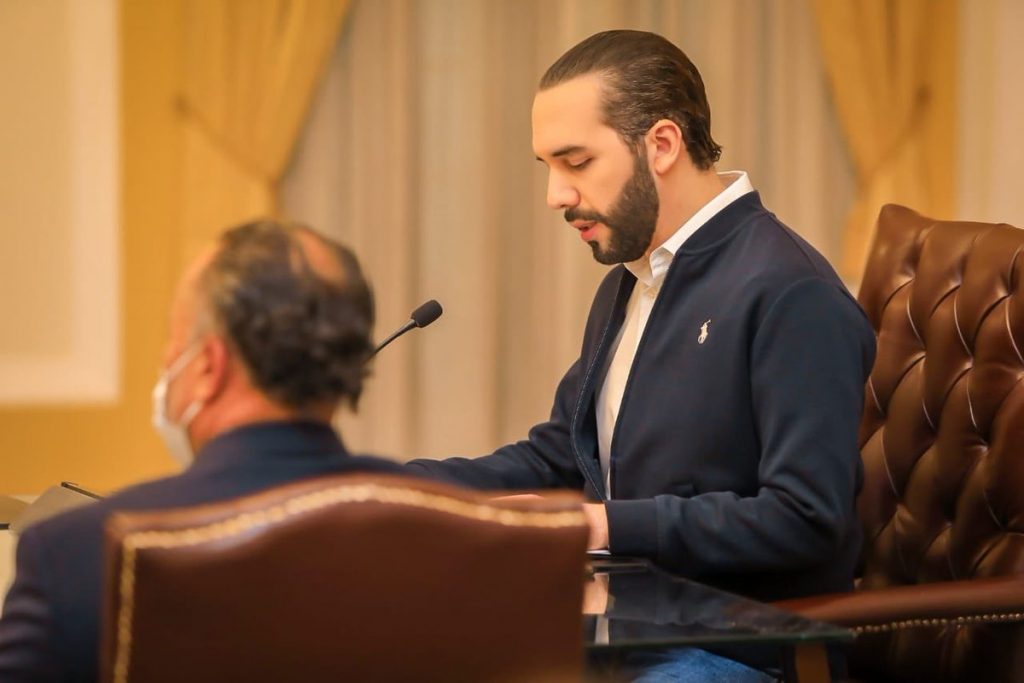
The lockdown rules are that people are not permitted to be in public. There are only three exceptions:
- People can travel to the market to buy food (only one person per family at a time).
- Workers can travel to and from work (security, health professionals, grocery store workers, food distributors).
- People can travel for health emergencies.
The streets are mostly empty. In the past week, I have only left my house twice, in order to purchase food for the family and food for our dogs. Every time I’m in public, I see considerably less people than I saw before the first Coronavirus case arrived in El Salvador.
Violators Of The Lockdown Are Brought To Quarantine Facilities
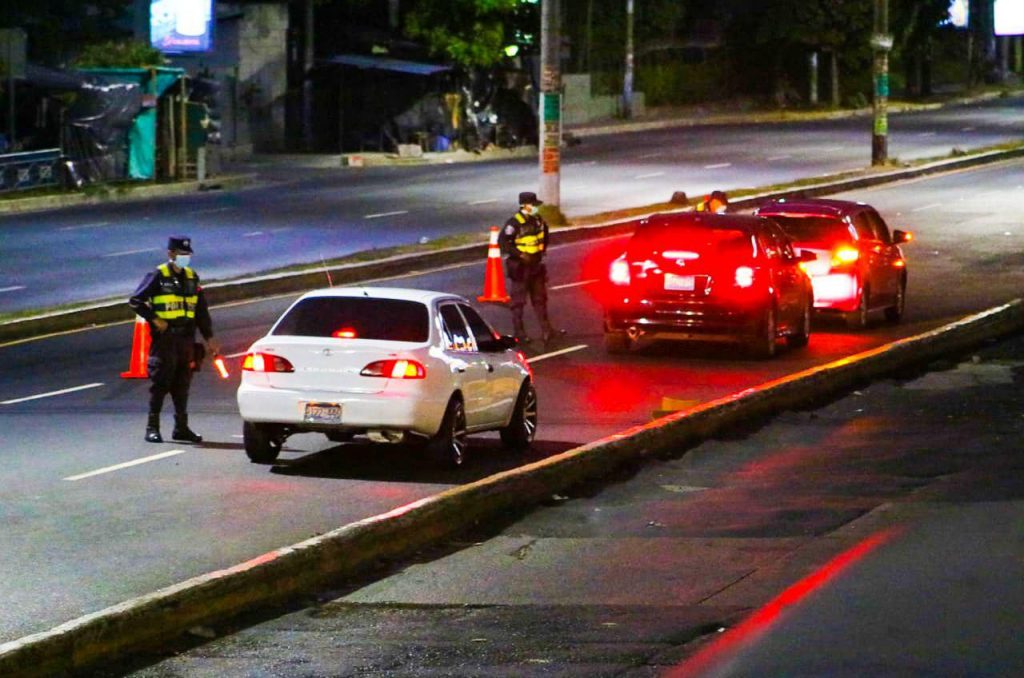
Police and military are scanning the streets and public areas for lockdown abusers. They’ve setup multiple highway traffic checkpoints that look at people’s identification cards and ask questions about the reason for being in public. Authorities reported that police had detained 712 people for failing to comply with the household quarantine measures, with the department of Cuscatlán registering the most detained (158), San Salvador (98), Santa Ana and Chalatenango (81), Ahuachapán (65) and San Miguel (49). Usulután is the department with the fewest cases, with only 5 detained.
As people violate the lockdown rules, police put them into quarantine where they’ll remain until the 30-Day lockdown is finished. The quarantine facilities are essentially dorms, with bunk beds. Not exactly a comfortable situation for people that don’t know each other.
Quarantine Facilities Are Considered To Be A Ticking Time Bomb
The challenge with apprehending pedestrians is that the quarantine facilities will inevitably become infected. This is a big concern, based on other people I’ve talked to in the Facebook group “Expats In El Salvador” that I’m part of.
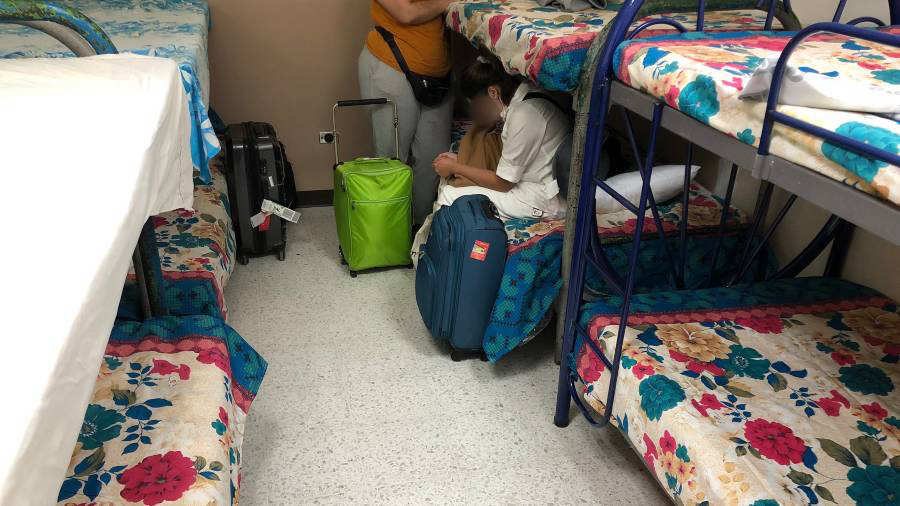
People worry that these quarantine facilities may essentially become incubated petri-dishes due to the high-risk people that will be placed in them. Many worry that if (when?) they become overwhelmed from infected people, they may result in very dangerous situations. People generally don’t like being detained, especially with people they don’t know and they may not think rationally in these circumstances.
Similar to quarantine facilities, Salvadorans are also concerned about the prisons. Prisons are generally secure here, but they’re overpopulated and already put under strain. When Coronavirus starts to impact the inmates, it’s difficult to know if health personnel will be able to respond in a meaningful way. After all, inmates in El Salvador prisons are often violent gang members that also opportunists. On the other hand, if Coronavirus hits the country hard, it’s uncertain how much care medical providers can offer to prison inmates if hospitals are already overwhelmed.
Medical Health Services Are Limited In El Salvador
The biggest challenge for El Salvador, similar to other countries in Central America, is that medical facilities are ill equipped. Ventilators are in extremely short supply. El Salvador is a developing country. Hospital services are typically slow and less available than in more developed nations. Therefore, even if there’s only a slight uptick in Covid-19 cases, there is little doubt that hospitals will be overhwhelmed.
“Flattening the Curve” is critical to the highest degree possible here in El Salvador. Every time a person is in public, they’re risking spreading the virus which will inevitably lead to more deaths. This is why “Quedate en Casa”, or “Stay At Home” is posted everywhere in public, on TV, on Salvadoran websites, and even on people’s cars in the streets.
People’s Money Is Running Out
El Salvador is about a week into the lockdown. While food stores are still open and fairly well stocked, the bigger challenge is in people’s ability to pay for food. El Salvador’s growing middle class has seen a lot of economic growth over the past decade, however, people’s income is greatly dependent on their ability to work, sell goods and operate their small businesses. Those options have all vanished in the wake of the pandemic. Now people are depending on their savings and back-up food resources. People have very little.
President Nayib Bukele announced recently that the government will start distributing $300 to the household of every family in order assist in purchasing food for families. This will be a one-time event: only one payment, therefore families must stretch this money for the coming two months.
Another challenge: there are no easy mechanisms in place to distribute the $300 to each family, so the public is being asked to be patient while the systems are put in place to distribute the money.
Graves Are Already Being Dug In El Salvador
Perhaps the most sad and shocking part of this unfolding pandemic is the preparations that are being done behind the scenes. The government of El Salvador is preparing pre-dug graves for the deceased:
Preparan cementerio para posibles víctimas del coronavirus en El Salvador https://t.co/oh0C5xm66m 🎥 @merlincnn pic.twitter.com/qPEkxzRkJ2
— CNN en Español (@CNNEE) March 21, 2020
Unfortunately, pre-digging graves is necessary considering what happened in Italy, China and New York City: Morgues are overloaded. Similar to other countries in Latin America, El Salvador doesn’t have the time or resources necessary to manage large amounts of dead corpses. Therefore, they’ll be placed in a pre-dug graves and marked for families.
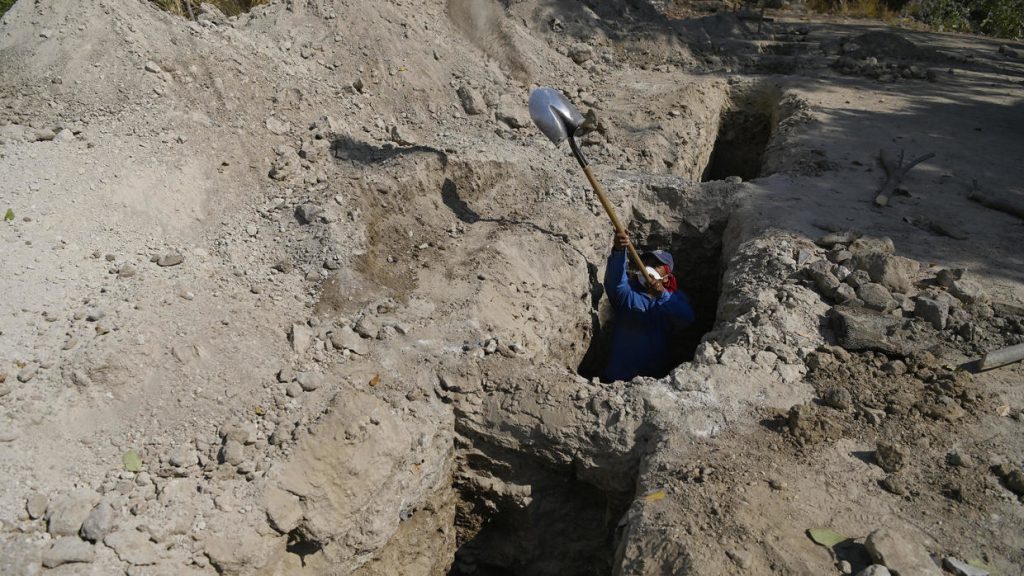
I can’t describe the feeling I first had when I saw the video of graves being dug. It was a very sobering feeling. My heart sank, especially after reading about the deaths in New York:
“Often, the patient will be on his deathbed, dying alone, and it has been incredibly painful to see the suffering of family members, whom I call from the ICU, hear their tears and cry with them on the phone”
Kamini Doobay, ER doctor in New York City
It broke my heart to read that. I hate to imagine people suffering alone, without family and without being able to say their final goodbyes.
Enduring The Lockdown In El Salvador
Everything is very methodical for our family during this time. We stay at home. One person from our family goes to the grocery store every two or three days. We always wear a mask when we leave the house. We’re careful with what we touch and we keep to our own space.
Our biggest concern is for the health of Stephanie’s mother. She’s in her mid 50’s and has good health. However, according to statistics, the elderly are at high risk. Being in her 50’s, she’s at higher risk than us. Therefore we always shower when we return to the house. We wash our hands often. And we’re careful with what we touch when in public. We always keep our distance.
My girlfriend is a veterinarian, so she’s permitted to continue her work at her clinic during the lockdown. She has less business and therefore less income, but she’s fortunate to be able to work. For me, I’m an application programmer. All of my work is done online. I am fortunate to have a couple of client projects during this time, because life would be much more difficult if I couldn’t assist with purchasing food for the family.
When I’m not working on the computer, I’ll talk to my family in the United States or we’ll watch TV, play computer games, scan social media, check the news or play with our new litter of puppies. Lulu recently had 5 beautiful puppies, so the pups keep us busy: cleaning up after them, giving them baths, feeding them, and resolving issues when they’ve caused havoc. They’re 6 weeks old and they’re a lot of fun to play with.
This is a difficult time for everyone. We’re worried for the health and safety of the community here where we live. We’re worried for the hospitals. We’re respecting the lockdown and staying at home. Please do the same wherever you are.

